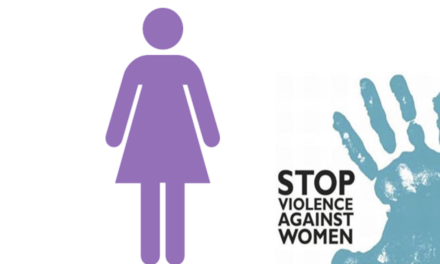Virginity Test; Religious or Cultural?
Virginity test remains a controversial subject, especially when this phrase is used and brought up when the conversation is about rape victims. Virginity testing is controversial because of two main reasons: both because of its implications for the tested girls and women and because it is viewed as unethical. In cases of suspected rape or child sexual abuse, a detailed examination of the hymen may be performed, but the condition of the hymen alone is often inconclusive. These tests have been done in more than 20 countries unfortunately and the bases for this inhumane test in not religious. Instead it is a cultural or country based rulings that have no faith based relation.
The statement, which was issued during the World Congress of Gynecology and Obstetrics (FIGO) in Rio de Janeiro, stresses that such tests are both unscientific, and a violation of human rights.So-called “virginity testing” – also often referred to as hymen, “two-finger” or per vaginal examination – is a gynecological inspection of female genitalia carried out in the false belief that it can reliably determine whether a woman or girl has had vaginal intercourse.
In a global call to eliminate violence against women and girls everywhere, the UN Human Rights Office (OHCHR), UN Women and the World Health Organization (WHO), said that “this medically unnecessary, and often times painful, humiliating and traumatic practice must end”. The practice is a long-standing tradition documented in at least 20 countries, spanning all regions of the world. Women and girls are often forced to undergo virginity testing for various reasons, including requests from parents or potential partners to establish marriage eligibility or even from potential employers. It is mostly performed by doctors, police officers, or community leaders on women and girls, in order to assess their virtue, honour or social value. In their statement, the UN agencies explained that the practice has “no scientific or clinical basis” and that “there is no examination that can prove a girl or woman has had sex”, as the “appearance of girl’s or woman’s hymen cannot prove whether they have had sexual intercourse or are sexually active or not”.
Virginity testing was also used on women entering the United Kingdom on a so-called fiancée visa, when they said they were immigrating to marry their fiancées who were already living in the country. The British government argued that if the women were virgins, they were more likely to be telling the truth about their reason for immigrating to the country. In January 1979, a woman was required by British immigration officers to undergo a virginity test when she arrived in London claiming that she was there to marry. Such a visit did not require a visa, but as proof of her bona fides, she was required to submit to the test. This practice was exposed by several human rights activist groups and media outlets and soon after the policies changed.
Egypt‘s military forces performed virginity tests on women detained during the 2011 Egyptian revolution. After Amnesty International protested to the Egyptian government in March 201 the government claimed the tests were carried out in order to refute claims that the women had been raped while in detention. Freemuslim Women Rights Defenders condemns Egypt’s violations of women rights.
Virginity testing in Indonesia has been around since 1965. In August 2013, it was announced in Prabumulih district, South Sumatra, Indonesia, by education chief Muhammad Rasyid, that female teens attending high school there would be given mandatory annual virginity tests, beginning in 2014.The stated intent is to reduce promiscuity in the district.In 2014 the Human Rights Watch reported that a physical virginity test is routinely performed on female candidates to the Indonesian Police Force as part of the job application process.
Virginity tests are common in Afghanistan. Some women undergo multiple tests. The tests are often done without the woman’s consent. They have drawn widespread condemnation, with critics saying they are inhumane and hurt the dignity of women. As a consequence of efforts by human rights groups including Freemuslim, recently a court in Punjab province-Pakistan, ended the practice of physical virginity tests. The Lahore High Court judge, Ayesha Malik said the tests were “humiliating” and “had no forensic value”. The ruling followed two petitions filed in Punjab province by rights activists. Campaigners have long demanded an end to virginity tests as part of the medical evaluation in rape cases, saying they have no scientific basis. Monday’s ruling applies in Punjab but may serve as a precedent for petitions in other provincial high courts. A similar petition is currently pending in the Sindh High Court.
Women rights campaigners have long argued that the so-called virginity test is part of a traditional patriarchal culture that shifts blame onto women in the event of sexual assaults. Freemuslim’s Women Rights Defenders condemns such actions by any governments. These tests undermine the dignity of women, and are not religious, are baseless and violate human rights in general. We condemn the virginity tests and urge governments to be more conscious of the effect these test have on women’s mental health. The dignity of women is far more important and the offenders should be detained and prosecuted.















